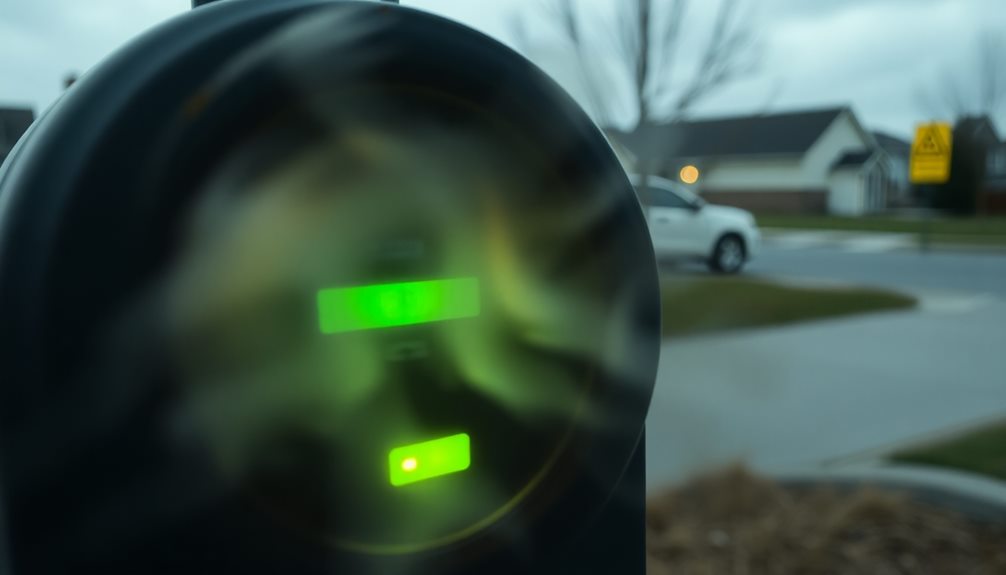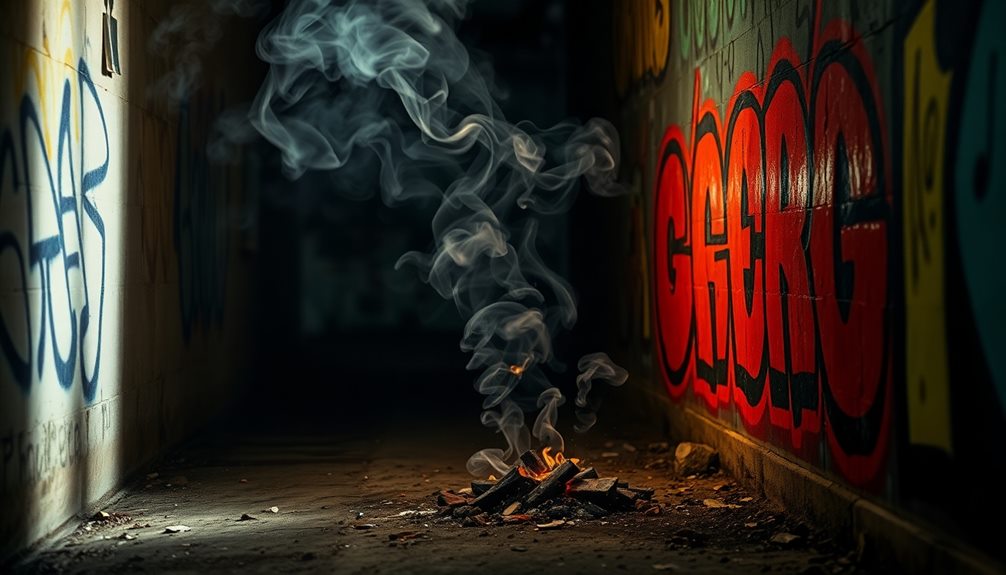If you ever sniff a strong, unpleasant smell like rotten eggs, it could mean there's a gas leak nearby. Natural gas, which is normally odorless, has a pungent odor added to help you detect danger quickly. This sulfur-like scent is a warning sign, so don't ignore it! It might be overwhelming, making you feel uneasy. If you catch this smell, immediately open windows for fresh air, and avoid using any electrical switches. Remember, staying calm is key. You'll want to know what steps to take next for your safety, so keep on exploring this important topic!
Key Takeaways
- Leaking gas has a strong, sulfur-like odor similar to rotten eggs, added for easy detection.
- The smell can be overwhelming and may cause unease, indicating a potential gas leak.
- A sharp, metallic scent may suggest significant gas leaks, requiring immediate attention.
- Common locations for gas leaks include kitchens, basements, and outdoor areas near gas appliances.
- Swift action is essential; evacuate immediately and avoid using electrical devices if the smell is detected.
Introduction
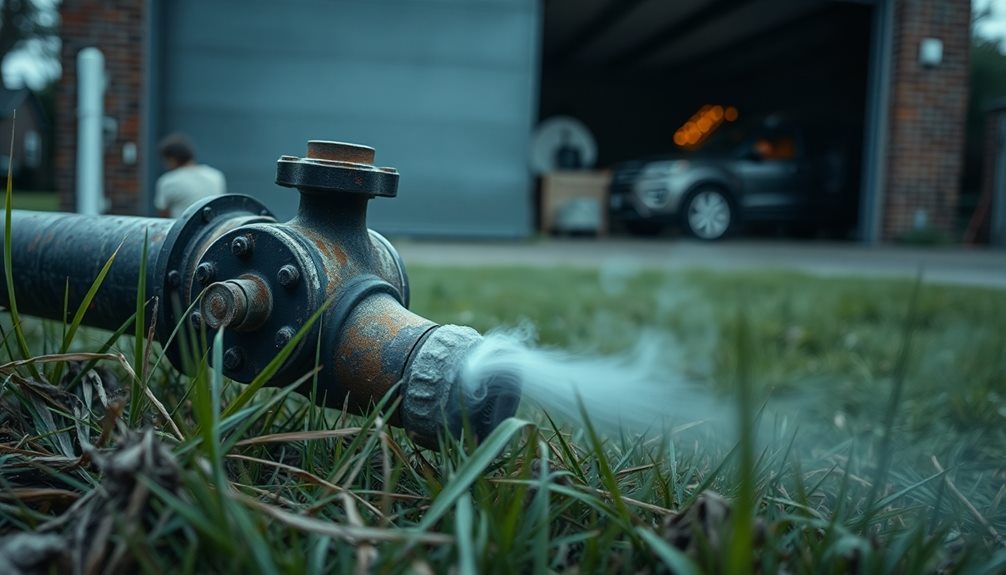
Gas leaks can pose serious safety hazards, making it crucial to recognize the signs of a leaking gas smell. When you suspect a gas leak, acting quickly is vital.
You might be sitting at home, enjoying your favorite show, when suddenly, you notice something unusual. That's when your senses kick into action!
You'll want to pay attention to any strange smells, especially if you're near your stove or heating system. Gas companies add a special odor to natural gas, making it easier for you to detect leaks.
While you might feel a little uneasy, staying calm is key.
If you think you smell gas, it's time to take matters into your own hands. First, open windows to let fresh air in.
Then, don't turn on any electrical switches or use your phone. Instead, step outside and call your gas company or emergency services.
Description of the Smell
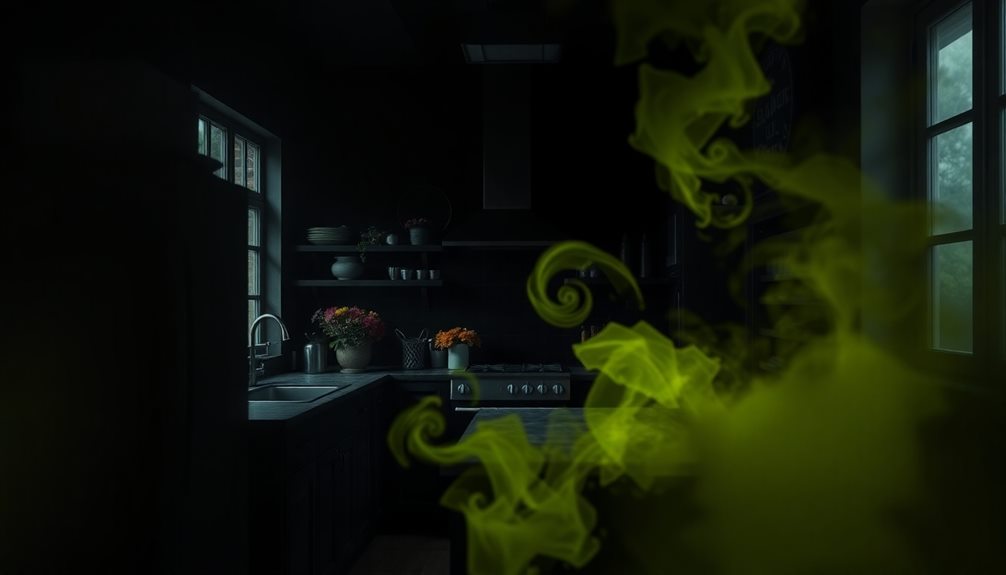
How can you identify the smell of a gas leak? You'll notice it right away! The scent is often described as a strong, sulfur-like odor, similar to rotten eggs. This distinctive smell is added to natural gas, which itself is odorless, to help you detect leaks quickly and easily.
Imagine walking into a room and catching a whiff of something off—your nose might crinkle, and that's a good instinct!
As you breathe in, you might find the smell overwhelming and unpleasant. It can linger in the air, making you feel uneasy. If you're near a stove, heater, or gas line, pay extra attention. Sometimes, it can smell more like a sharp, metallic scent, especially if there's a significant leak.
If you ever catch this smell, don't ignore it! It's a warning sign that something's wrong. Your safety is the most important thing.
You might want to open windows, leave the area, and call for help. Being aware of this smell can keep you and your loved ones safe. Stay alert, and trust your nose—it's a great tool!
Source and Composition

Recognizing the smell of a gas leak is just the beginning; understanding its source and composition can help you respond effectively.
Natural gas, primarily methane, is colorless and odorless on its own. To make it easier to detect leaks, companies add a substance called mercaptan. This is what gives gas its distinct, sulfur-like odor, often compared to rotten eggs.
When you catch a whiff of this smell, it usually means there's a leak in your home or nearby. Gas leaks can happen in various places, like worn-out pipes, loose fittings, or damaged appliances. The source of the leak is crucial to identify because it helps determine the necessary actions to take.
You should never ignore this smell. If you notice it, evacuate the area immediately and call your gas company or emergency services.
Remember, you're not just reacting to a smell; you're responding to a potential hazard. Understanding the source and composition of that smell empowers you to act swiftly and safely, ensuring you and your loved ones stay protected.
Always stay alert and trust your senses!
Typical Scenarios or Environments

Where might you encounter the unmistakable smell of a gas leak?
Picture yourself in your cozy kitchen, cooking dinner, when suddenly you catch a whiff of that rotten egg scent. This is often where gas leaks occur, especially near stoves or ovens.
You might also notice it in your basement, where gas appliances like water heaters hang out.
Imagine stepping outside to your backyard, maybe for a barbecue. If you smell gas near your grill or outdoor heater, it's a signal to take action.
Gas leaks can even happen in garages, especially if you store gas-powered tools or vehicles.
Another common scenario is during the chilly months when you fire up your furnace. If you get a strong gas smell while the heat is running, it's crucial to investigate.
Emotional or Cultural Associations
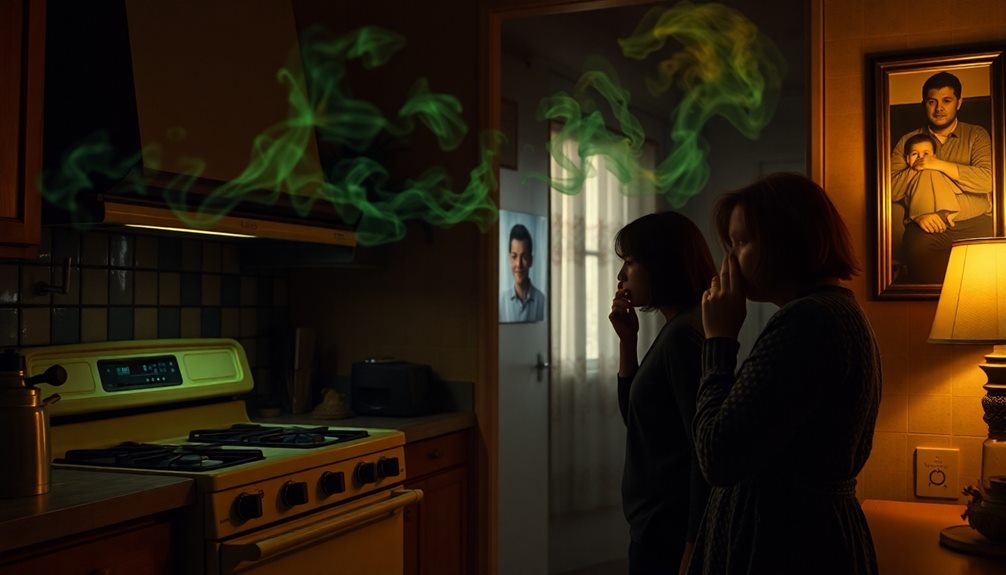
Gas leaks often evoke a mix of fear and urgency, as they can pose serious safety risks. You might think of the unmistakable smell of rotten eggs, a scent that can make your heart race. This smell triggers alarm bells in your mind, reminding you of the importance of safety.
Culturally, the odor connects deeply with stories of danger, often portrayed in movies and TV shows where a gas leak leads to chaos or disaster.
When you catch a whiff of that distinct scent, it's a prompt to act quickly. You might feel a rush of adrenaline as you remember the steps to take.
For many, the smell isn't just a warning; it's a reminder of family gatherings and cozy dinners, where gas stoves create warmth. Yet, it's a double-edged sword, bringing both comfort and concern.
This blend of emotions can shape how you respond. Your experiences and the stories you've heard influence your reactions, turning a simple smell into a symbol of safety and caution.
Health or Safety Considerations

A gas leak can pose significant health and safety risks, making it crucial to act swiftly if you smell that distinctive odor.
Natural gas is colorless and odorless, but companies add a chemical called mercaptan to give it that familiar rotten egg smell. If you catch a whiff of it, don't ignore it!
First, get everyone out of the building quickly.
Don't turn on or off any lights or appliances, as even a tiny spark can ignite the gas. Once you're safely outside, call your gas company or emergency services. They've the tools and expertise to handle the situation safely.
Inhaling gas can lead to headaches, dizziness, or even nausea.
If you feel any of these symptoms, it's essential to get fresh air immediately!
Also, remember that gas leaks can lead to explosions or fires, so it's better to be safe than sorry.
Regular maintenance of your gas appliances can help prevent leaks, too.
Consider getting a carbon monoxide detector, as it can alert you to dangerous levels of gas.
Staying alert and informed will keep you and your loved ones safe.
Always trust your instincts—if it smells wrong, it probably is!
Final Thoughts
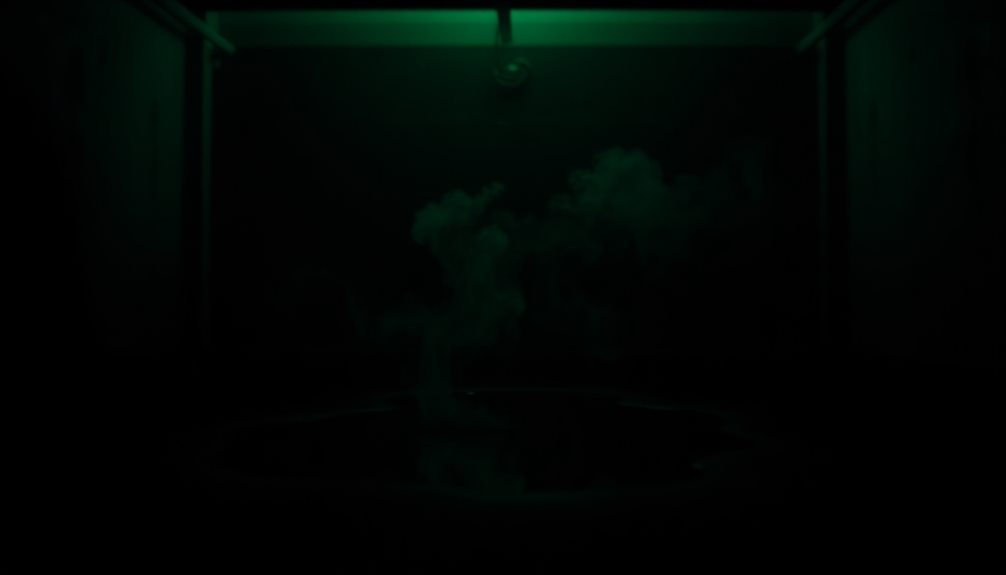
Taking gas leaks seriously can save lives and prevent property damage. If you ever smell that distinct odor of rotten eggs, it's crucial to act quickly. Your safety is the most important thing.
Don't ignore it or brush it off—gas leaks can lead to fires, explosions, or serious health issues. Make sure you know the signs and what to do if you suspect a leak.
You should always check your home for gas appliances and ensure they're well-maintained. Regular inspections can help spot potential issues before they become dangerous.
If you're unsure about anything, don't hesitate to call a professional. They're trained to handle these situations safely.
Frequently Asked Questions
How Can I Detect a Gas Leak in My Home?
To detect a gas leak in your home, you can use your senses. Listen for hissing sounds, look for dead plants, and smell for unusual odors. If you suspect a leak, evacuate immediately and call professionals.
What Should I Do if I Smell Gas?
If you smell gas, don't panic. Evacuate immediately, avoiding flames and sparks. Once safe, call your gas company or emergency services. They'll help ensure your home is safe and address any leaks. Stay alert!
Can Leaking Gas Cause Explosions?
Yes, leaking gas can cause explosions. If you suspect a leak, leave the area immediately, avoid using electronics, and contact emergency services. Your safety is the priority, so don't take any chances.
How Often Should I Check for Gas Leaks?
You should check for gas leaks at least once a year or immediately if you smell gas. Regular inspections help ensure safety and can prevent dangerous situations, so don't overlook this important task.
Are There Tools to Help Identify Gas Leaks?
Yes, there are tools to help you identify gas leaks. You can use gas leak detectors, soapy water, or even specialized sensors. Regularly checking these tools ensures your home stays safe from potential gas hazards.
